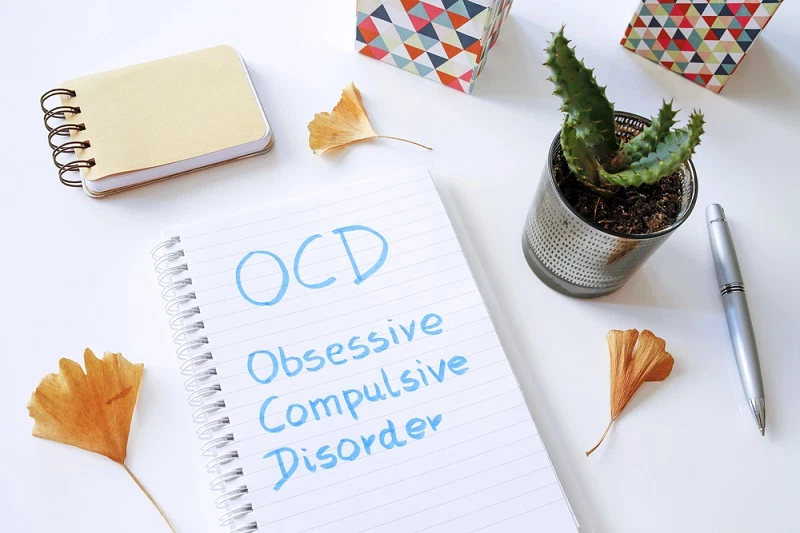Obsessive Compulsive Disorder (OCD) is a mental condition that affects one’s thoughts and perceptions to suppress anxiety. According to a PubMed publication, between 1% and 3% of people suffer from OCD.
Researchers came up with different approaches to treat OCD, including medication and therapies. However, these treatment plans are not 100% effective; at times, the OCD becomes resistant.
What is Treatment-Resistant OCD?
Here is a treatment-resistant OCD definition: a type of OCD that is resistant to conventional treatments.
Finding OCD resistant to treatment is rare but its effects can be worrying. In this case, no self-help tools, medication, therapies, and lifestyle changes yield any positive impact on the OCD patient.
What Are the Reasons Why Medication and Psychotherapy Are Not Working?
Treatment-resistant obsessive-compulsive disorder is a complex condition, and there is no universal why medication and psychotherapy fail in their treatment. Here are the common reasons why OCD medication and psychotherapy might fail to work:
- Doubting pharmaceutical medications. The first reason why OCD treatment is that the patients doubt the efficacy of pharmaceutical medicine. According to them, big pharma medication contains harmful chemicals that kill people slowly and contains harmful side effects.
- Self-Guilt. In some instances, OCD patients overthink so much that they feel guilty about it. As such, they blame themselves for the behavior and seek treatment, terming it as a “self-inflicted” condition.
- Inaccurate information processing. OCD patients also take time to process simple information while, at times, they rush their thoughts. Rushed or delayed information processing makes it hard to monitor the efficacy of the treatment administered to the patients.
- Fear of stigma. OCD patients might find it hard to disclose their fears to others for fear of being judged or stigmatized. As a result, they delay seeking treatment, making the condition worsen. In other cases, the patient might be afraid to share their condition for fear of the unknown.
- Faulty belief system. Humans are shaped to think and act a certain way, which OCD patients don’t believe in. The patients are likely to make illogical moves based on their beliefs which could be faulty for different reasons.
- Family history of OCD. Treating a person with a family history of mental issues, including OCD, can be challenging. There is a high possibility of misdiagnosis and administration of the wrong medication, making the treatment hard.
- Cluelessness. In some cases, OCD patients are unaware of their surroundings, and diagnosing and administering medication becomes a challenge. A clueless OCD patient is hard to treat since the medic might not know whether to give them medication or take them through a therapy program.

How to treat treatment-resistant OCD?
The following is a summary of treatment-resistant OCD management options which you can use:
Conventional Medicine
You can manage OCD treatment-resistant variance by using conventional medicine. When SSRIs (antidepressants) and psychotherapy fail to work effectively, medics recommend combining the two.
Preliminary research has shown that increasing SSRI doses increases its efficacy in treating resistant OCD. However, before taking the SSRI, it is advisable to get the approval of a specialist to avoid an overdose since it can cause numerous side effects.
A 2015 study found that when OCD becomes completely resistant to treatment, you can go beyond what the FDA approves as the right medication. In other cases, it is advisable to use lower amounts of an enzyme inhibitor and clomipramine.
Another treatment plan you can use to manage treatment-resistant OCD is taking an antipsychotic to reduce to achieve optimal “OCD remission” levels. Although only one-third of OCD patients who take antipsychotics respond positively, it is an effective way to manage the condition.
The last treatment plan that can be used to manage OCD symptoms involves the use of atypical antipsychotics such as aripiprazole and risperidone. Although there are no conclusive research results, people who have tried these medications have recorded an improvement in their results. According to the trials, 3mg/day of aripiprazole and 15mg/day of risperidone gave optimal results.
Noninvasive Neurostimulation
Studies have established that transcranial magnetic stimulation (TMS) and transcranial direct current stimulation (tDCS) effectively suppress treatment-resistant OCD symptoms. According to a 2021 study, TMS triggered the supplementary motor area (SMA) and dorsolateral prefrontal cortex, alleviating OCD symptoms that were considered resistant to medication.
A Deep TMS can also trigger the brain, especially the anterior cingulate cortex, to relieve the patient of recurring OCD symptoms. This is an FDA-approved method of managing OCD and gives effective results.
Another noninvasive neurostimulation method that medics use to manage OCD is magnetic seizure therapy. It involves the use of magnetic pulses to trigger non-specific seizures, which in turn lowers anxiety.
Electroconvulsive therapy (ECT) is the final noninvasive neurostimulation method that inhibits OCD symptoms. It involves triggering non-specific seizures, leading to lower anxiety and depression, which are common OCD symptoms.
Invasive Procedures
Where medication and noninvasive neurostimulation fail, invasive procedures come in. Deep brain stimulation (DBS) and ablative neurosurgery are common invasive surgeries that treat OCD.
Most people prefer DBS over ablative neurosurgery since it is reversible. It involves the insertion of smart electrodes into the brain for stimulation, effectively managing severe OCD.

Glutamate
Glutamate is a non-essential amino acid that most people prefer in managing OCD. The primary reason why people prefer it over other treatments is that it is a precursor of GABA, which is found in foods such as nuts, seafood, and mushrooms.
N-acetylcysteine (NAC) is an amino acid that regulates the glutamatergic signaling between the gastrointestinal tract and the brain. The higher the NAC levels, the lower the OCD symptoms persist.
Novel Mechanisms
There is limited information on the efficacy of novel or new OCD medications in pharmacies. These medications include tolcapone, psilocybin, pregabalin, nabilone, and ondansetron.
Anti-inflammatory Treatments
Studies have shown that all abnormal immune system functioning increases inflammation in the brain of OCD patients. Nonsteroidal anti-inflammatory drugs such as celecoxib can help alleviate inflammation and OCD symptoms. Other anti-inflammatory drugs which have given admirable results in suppressing OCD symptoms include rituximab and fluvoxamine.
Lifestyle Approaches
Although the treatments above effectively manage OCD symptoms, you cannot underestimate the efficacy of a healthy lifestyle. Mindful meditation, hypnosis, a healthy diet, and regular exercise are also effective solutions to OCD.
Summary
In summary, you don’t have to worry about treatment-resistant OCD since the current developments in medical fields are viable solutions. You can treat the condition through medication, noninvasive neurotransmitters, invasive approaches, glutamate, novel mechanisms, anti-inflammatory mechanisms, and lifestyle approach.
